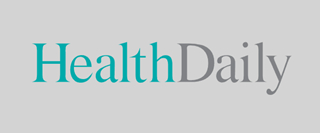THE VALUE OF MEDICAL TECHNOLOGY
The rapidly growing global medical technology industry, in which M.S. JACOVIDES HELLAS successfully operates for more than 40 years in Greece, constitutes a key component of the Healthcare sector and one of the most promising fields of Life Sciences, given the speedy advancement of technologies and the convergence of biotechnology with medical technology and IT in the recent years.
The medical devices segment consists mainly of three core product categories: consumables (from simple to high-tech materials), equipment (from small appliances to large medical equipment), and in-vitro diagnostics. Medical Technology participates in an extensive range of Life Sciences activities, covering from the early diagnoses of health issues, even before the onset of symptoms or complications, to the treatment of many diseases. Its contribution today extends from primary research to the research & development (R&D) of new pharmaceuticals/biopharmaceuticals and other healthcare products, to the conduct and evaluation of clinical trials and the discovery of biomarkers for the treatment of rare diseases. Moreover, it has led to the discovery of innovative methods and medical devices with important applications, such as robotics, telemedicine, remote continuous monitoring of patients (RPM) as well as advanced imaging techniques, assisted by artificial intelligence that facilitate interpretation and ensure accurate diagnosis.
The market in Greece which witnessed high growth rates until 2009, recorded a dramatic decline of more than 60% during the financial crisis. As a result of this drop, Public Health Expenditure has been steadily below 5% of GDP for several years (compared to 7.9% of the EU average), thereby hindering the ability to meet the citizens’ actual needs for quality medical care. It is indicative that the overall Greek market size of medical devices in 2021 was at the same level as in 2001, i.e., 20 years ago.
However, despite the recent pandemic experience, which emphasized the importance of health in everyday life, in society, and overall, in the economy, the added value of medical devices has not been recognized in our country. Although the amounts spent for their use constitutes an investment that has a multiplier effect on the economy, the share of Greek market size for medical devices when compared to the total of the EU27 lags by about 50% on what it should have been based on the share of the corresponding GDP (at 0.8% compared to 1.25% of the total EU market). This makes it practically impossible, especially for the public sector, to adopt new methods and innovative technologies that elevate the level of care.
An effective way to address this matter is to utilize the Recovery and Resilience Facility (RRF) plan, which offers our country the prospect to utilize resources that effectively upgrade the health sector. However, while the amount allocated to Greece is indeed large (€30.5 billion), only 3% of it has been assigned to the Healthcare Sector. A desirable option, therefore, could be the increase of the above proportion, as the respective percentages of the RRF of Italy and Portugal allocated for Health are 10% and 11% respectively.
M.S. Jacovides Hellas remains since its establishment, committed to introducing into the marketplace high-quality, cutting-edge medical devices and technologies that aid in the prevention, early detection, and treatment of diseases and thereby improving the quality of life.

